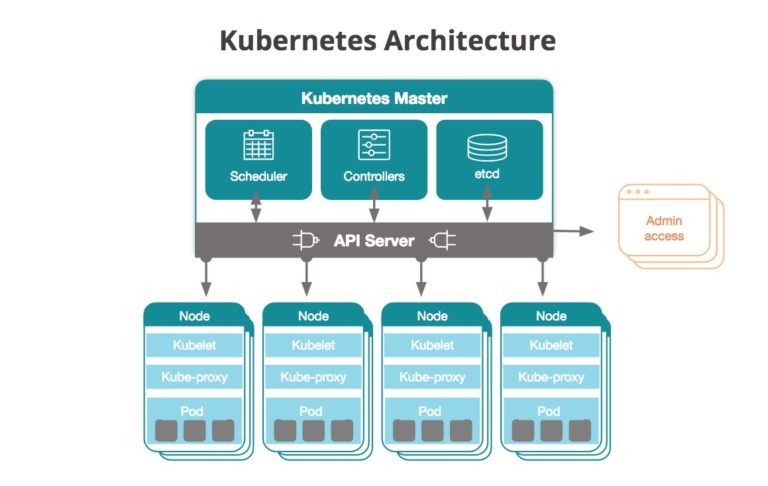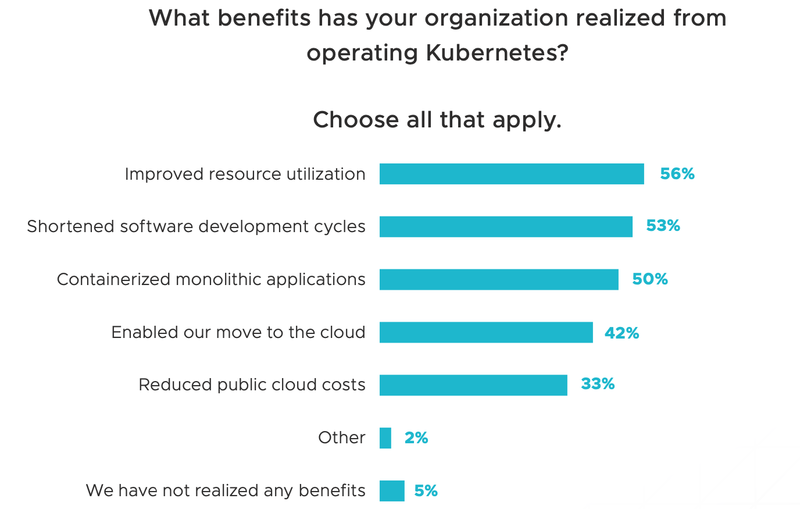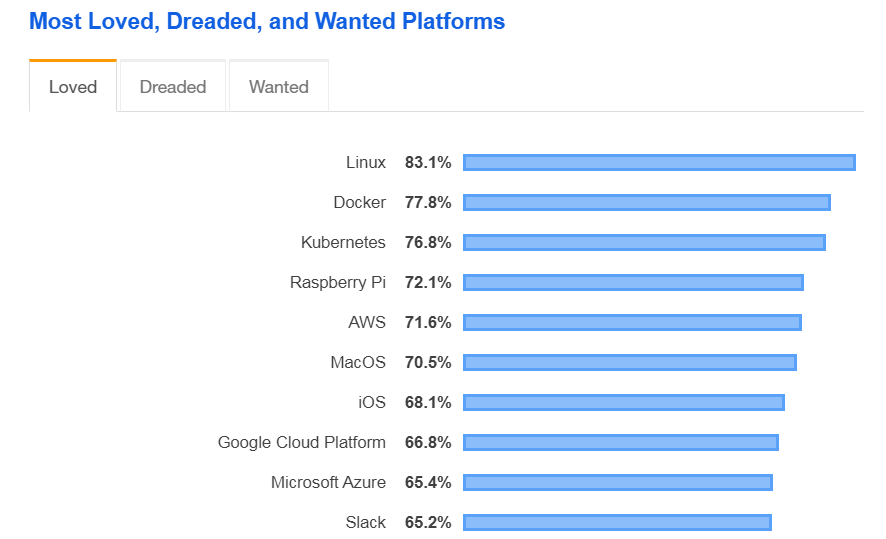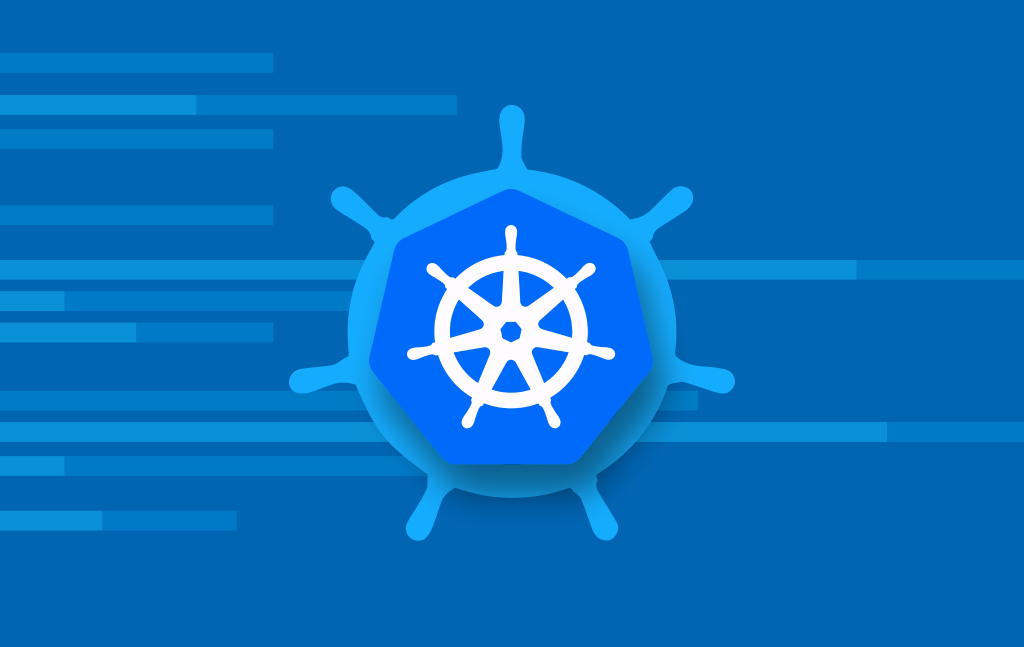Why Adopt Kubernetes To Transform Your Business IT Infrastructure?
- DevOps
- May 13, 2020
In this competitive era, businesses need to offer apps that deliver collective client experience alongside an incredible quality. Thereby, every large enterprise is worried about its IT infrastructure that requires supporting such high-end apps that are advanced in terms of security, scalability, and capability, cost, and customization factors.
This is where Kubernetes comes into play. It’s an open-source container orchestration platform that has grown as a genuine standard in improving organizations’ IT infrastructure. It help them accomplish their business objects with promising results.
What is Kubernetes?
Kubernetes is a system that distributes workload through apps and an orchestration technique for servers that are gathered in a data center. Kubernetes helps enterprises save money as it needs fewer workforces for handling IT. Moreover, it makes applications more flexible and functional.
Google developed Kubernetes and currently, it’s part of CNCF(Cloud Native Computing Foundation), with strong involvement and contribution from several small and large organizations. Kubernetes makes sure the accessibility and availability of resources. It provides a balanced implementation for numerous servers engaged at the same time.
Since Kubernetes is a deployed data processing system, it can allow multiple types of servers simultaneously, which you can locate at any distance for sharing workloads for a common customer. Then you can present these workloads to clients as services.
Through this system, Kubernetes allows the client machine to pass data, access services through the network, and gather responses from the network. Moreover, you can run Kubernetes within public Cloud or on-premises. It makes applications more portable, so IT can shift them more easily between internal environments and various clouds.
Rise of K8s (Kubernetes)
The arrival of app containers has proven to be the most vital contributing forerunner to Kubernetes. Due to them, stateless apps have become more flexible for scalability and offer a constant experience of app distribution. Now, the main thing is to handle delivery services and management, apps, architecture, and it has connected numerous containers with hosts.

Kubernetes has been infused with the most dependable architectures and API patterns of earlier software. It has paired them with load balancing, present authorization policies, and other features that are needed to handle and run apps on a huge scale. As a result, it offers developers the groundwork for cluster abstractions to allow complete portability across clouds.
Many industry players have extended spending on resources and ensuring mission-critical workloads. Luckily, Kubernetes received greater responses for the explosion of adoption that cleared the focus of mass container management space.
Role of Kubernetes in Businesses
Despite the main business, every organization is adopting digitalization. Earlier, businesses were limited to quarterly distributions for vital apps. The Kubernetes declarative API-driven infrastructure allows teams for working freely. Additionally, it helps operators to focus on their business targets.
These prime changes in the working culture have been proven to contribute towards autonomy and higher productivity, alongside reducing the development teams’ labor. Kubernetes allows teams to distribute new software products and creates a fast virtuous cycle for tech practitioners toward the success of several organizations.
Kubernetes ministers a collaborative working culture for inspiring the contribution of resources, sharing of learning, and growth of developers inside the industry. This supports a suitable ambiance to advantage businesses, end-users, developers, and contributors similarly.
The Present State of Kubernetes
Kubernetes has put lots of effort into helping users deal with the end condition of what a developer requires the system doing while keeping replicas’ running and restoring procedures automatically. One configuration gets circulated through all accessible clusters. Hence, you have one standardized platform for being constantly utilized across the industry.
Kubernetes has become a great way for maximum clients to orchestrate and handle containers for making the idea demanding. It can successfully orchestrate particular distribution on particular sites across numerous sites with the app lifecycles.
Prioritizing clients in the procedure has been the reason behind K8s’ success. This is how developers have motivated native infrastructure derived development of the industry. Also, it has changed the way of handling complex environments while maintaining the capacity of combining practical rules and accessibility of set up.
Kubernetes has moved the industry’s focus from accomplishing an exclusive condition to a better abstraction state. Thereby, you can have a formulated network of solutions for tackling company problems.
Kubernetes has also accomplished extensibility in handling and orchestrating containers. Users can integrate many primitives into one app and tailored behaviors easily and the capacity to tailor and maximize.
K8s is the foremost system that helps orchestrate from large to microenvironments. It has successfully created enterprise multi-cloud plans into reality by offering a consolidated set of APIs and ideas.
Due to K8s, organizations can suitably build container-based apps. After all, it boasts cloud provider assistance with an omnipresent platform that helps businesses embrace an innovative technology with reliability.
Kubernetes offers users a complete stability of developing containers with their resources for running them, incorporating networks, configuration, databases, storage, secrets and all tailor-made specs. The consistency has made it simpler for developers to track and configure stacks.
Furthermore, it offers a seamless combination of present cloud service through catalogs and brokers and a unique significance of declarative pattern over necessities to enable accessible app state handling.
The Future State of Kubernetes
With the development of apps and adopting Kubernetes, currently, it has been the prime state. Earlier, large organizations were concerned about orchestration because of the inadequacy of vital tools. Luckily, now they can access those tools.
It’s only the beginning with new ways for complying with machine learning, edge computing, and things of moving to the cloud-native ecosystem. They have been seamlessly done through Kube-flow as they are the most certain way of success.
According to the latest published keynote by Janet Kuo, a Googler and KubeCon Co-Chair, people who don’t need to be concerned about container handling, will become bored with Kubernetes soon.
It only requires supporting the innovation and initiative with the current cloud-native ecosystem for rewarding every contributor’s efforts of helping develop and maintain the tech infrastructure. Moreover, it has been possible for every individual who has been involved in the global achievement of Kubernetes as it has transformed the globe for better.
Why Enterprises Are Adopting Kubernetes?
In case you are at the starting of the journey of Kubernetes adoption cycle or simply considering embracing Kubernetes for your cloud infrastructure, you need to know some of its major advantages.
Here are a few fundamental business capacities that Kubernetes can implant in an enterprise, whether it is small or large. So, let’s read why enterprises are adopting Kubernetes!
1. Kubernetes is a Future-Proof Solution
In case you are determined to utilize Kubernetes, you must be sure enough that it is convenient for numerous years for many reasons.
- Every prime cloud vendor supports it offering unusual solutions for it.
- Other container orchestration solutions are behind Kubernetes in terms of cloud vendors’ support, adoption and ecosystems. Earlier organizations concentrated on competing technologies are presently favoring Kubernetes. Docker is providing Docker Kubernetes Service rather than only Docker Swarm solutions and Mesosphere modified its name to D2IQ for being more open for Kubernetes and not completely concentrated on Apache Mesos.
- And definitely, the Kubernetes ecosystem is highly developing and new products are assisting various requirements on top of this platform are being launched regularly.
From an individual perspective also Kubernetes is future proof. In case you want to increase your user base to a huge audience, make sure that Kubernetes can deal with it because it is made for supporting deployed, large systems and originally it was built by Google engineers and supported by their experience in creating scalable platforms like Borg.
A similar scenario occurs if your app develops and becomes more complex. Sometimes microservice architectures come into play here and for these, Kubernetes is the best technology of preference.
Ultimately, if you want to move your cloud vendor for a purpose, you can simply discover the same Kubernetes service from a separate provider and Kubernetes creates such a move comparatively smooth stopping you from vendor lock-in.
2. Kubernetes is Good For Businesses
Many large organizations find a direct connection between enhancing client experience and enhancing apps. When the world is incomplete without software, app development is the basic tool for business development.

If you make your software supply chain more productive and efficient, it is better for your business. Kubernetes contributes to these enhancements directly, with 53% of respondents reporting reduced development cycles and enhanced resource usage. They are having more out of every dollar spent and developing software faster than ever.
3. Kubernetes Helps in IT Cost Optimization
Kubernetes can help you reduce business infrastructure expenses a lot if you are working at a huge scale. It makes a container-based architecture convenient by gathering apps together optimally utilizing your hardware and cloud investments.
Administrators sometimes over-conducted their infrastructure before for dealing with sudden spikes conservatively, or just because it was tough and time-taking to scale containerized apps manually. Kubernetes schedules and packs containers tightly and intelligently, considering the accessible resources.
Moreover, it scales your app automatically to fulfill business requirements, thereby enabling human resources to concentrate on other productive works. Several businesses have seen amazing enhancements in cost optimization using Kubernetes, for example: Pinterest, Spotify, etc.
4. Kubernetes Makes Your App Run More Stable
Want to be sure whether your app is up and running quite steadily? K8s can help you in this. For instance, it permits you to get rolling updates for modifying your software with no prevention. You can further set up K8s in a way that it assists highly accessible apps.
In case you are utilizing the public cloud services of prime vendors, be sure to reach a high uptime. Nevertheless, this is possible also with other infrastructures and technologies but sometimes engages significantly more efforts.
5. Kubernetes Ensures Enhanced Availability and Scalability
Now app success doesn’t rely on just its features, but also on its scalability. If your app can’t scale properly, it will be non-performant at the best scale and completely unavailable at its worst case.
Being an orchestration system, Kubernetes is a vital management system to scale and boost app performance automatically. For instance, you have a service that is CPU-intensive and with a dynamic user load that modifies depending on business conditions.
Here you require a solution to scale up the app and its infrastructure so the new machines are spawned up automatically as the load increases and scale it down if the load decreases. Kubernetes only provides that capacity by scaling up the app as the CPU utilization goes beyond a chosen threshold.
When the load subsides, K8s can scale the app back, thereby optimizes infrastructure usage. The K8s’ auto-scaling is not restricted to only infrastructure metrics; every kind of metric or resource usage metrics; even custom metrics can be utilized for triggering the scaling procedure.
6. Kubernetes and Its Large Ecosystem Can Boost Your Productivity
In case Kubernetes is well-executed to your engineering workflow, it can improve your productivity. The massive K8s ecosystem helps use Kubernetes more efficiently and easily lowering the bad effect of its usual complicacy. By depending on some current tools especially made for cloud-native software, you can have solutions that you could ever make rarely yourself.
Tools like Drone help you make CI/CD pipelines quickly for Kubernetes and Prometheus makes easier monitoring. This adequacy of tools in the ecosystem reduces release cycles dramatically, makes engineering workflows professional, and boosts the software quality eventually from development to creation.
This massive array of technologies definitely helps you tailor everything precisely to your requirements. As an extra benefit, maximum tools in the Kubernetes ecosystem are free to use and thereby open-source.
7. Kubernetes Can Be Less Expensive Than Other Solutions
K8s can be often less costly than the alternatives (based on your app). Since this platform has some fixed computing requirements, generally it is costlier for very small apps.
Nevertheless, if your computing resource requirements are larger, these common infrastructure requirements for the entire cost measurement become less important.
In these cases, other factors become more essential. For instance, K8s can auto-scale based on your app needs and incoming load and traffic by your app. So, K8s can scale up an app its needed resources during busy times of the year and scale down your infrastructure during less busy times.
So, you pay less when there is not much going on. In a nutshell, this causes higher use and stops you from paying for unnecessary resources. So, this platform can be less costly in some cases while costlier in others and there is always a possibility to lower the cost of operation.
8. Kubernetes Ensures Multi-Cloud Flexibility
Kubernetes and containers help you understand the promise of hybrid and multi-cloud. Now, enterprises are already operating multi-cloud environments and will do this continuously in the future also. K8s makes it simpler to run an app on a public cloud service or a combination of private and public clouds.
This enables you to place the right workloads on the right cloud to refrain from vendor lock-in. Utilizing the right features, getting the best fit, and getting access to migrate when it makes sense help you understand more ROI from IT investments.
9. K8s Enables Effective and Smooth Migration to the Cloud
Whether you are re-platforming, rehosting, or refactoring, K8s is the ideal solution. Since Kubernetes runs continuously across every environment, clouds like GCP, Azure, and AWS, and on-premise, it offers a smoother and authoritative path for porting your app on-premise to cloud environments.
Instead of handling all the complexities and variations of the cloud environment, enterprises can follow a more prescriptive way:
- Migrate to a cloud-based K8s instance. Here you have many choices: select a managed K8s environment from the cloud vendor or run K8s natively.
- Move applications to K8s on-premise. You are more focused here on re-platforming your applications to containers and bringing them under K8s orchestration.
- When your app is in the cloud, you can begin optimizing it to the cloud environment and its services.
10. K8s’ Cloud-native Tech Stack Allures Talents
Numerous software engineers wish to work in organizations that utilize interesting and modern technologies. K8s is certainly one of them as it has ranked as the 3rd most wanted platforms in the Stack Overflow Developer Survey 2019.

Integrated with an effective workflow with other cloud-native tools, your tech stack and procedures will be very appealing for possible applicants.
Moreover, your present manpower can get motivated for working with something new, which enhances the general satisfaction in your development teams and can lower employee turnover in the future. In short, it’s a material advantage for your company.
Final Verdict
The above discussion can easily answer why adopting Kubernetes can be the right choice for you. It is based on your particular requirements and priorities. If you want to begin a new project or work in a startup that needs to scale and grow more than only a fast MVP or if you want to upgrade a legacy app, K8s might be a good option.
After all, it gives you lots of scalability, strength, and flexibility. Nevertheless, it always needs a time investment because you need to acquire new skills and establish workflows in your development team.
Nonetheless, if done properly, the time investment for learning and adopting Kubernetes will pay off in the future because of a higher productivity level, better service quality, and a more encouraged manpower. In every case, you must make a detailed decision and there are ample good reasons for adopting Kubernetes.













